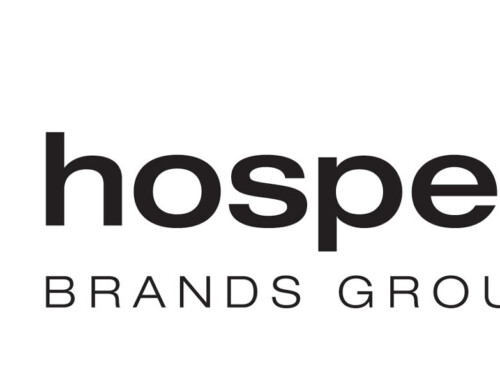Honoring a Legacy of Learning: Bill McGarvey as ISSA Trainer of the Year
When ISSA introduced its new Trainer of the Year Award in honor of the late Marion Ivey, a beloved master trainer whose life revolved around elevating people through education, the association wasn’t merely creating another recognition. It was preserving a philosophy—that effective training dignifies work, strengthens industries, and transforms lives.
The first recipient of that distinction, Bill McGarvey, director of training and sustainability for Imperial Dade, embodies that same spirit. Humble, practical, and endlessly curious, McGarvey has spent decades shaping how the cleaning industry approaches both professional development and environmental responsibility.
“I’m honored beyond belief,” McGarvey said. “But more than anything, I’m thrilled that ISSA created this award to honor Marion’s memory. He set the bar for what meaningful training should be—about people first.”
From the mop closet to the boardroom
McGarvey’s story starts in high school, when a friend got him a part-time job at a local research and development facility. “That’s where I learned the basics—floor care, heavy trash removal, dust mopping, and eventually running a swing machine,” he recalled with a laugh. “There were dents in the wall before I got the hang of it.”
After a stint in the military, he returned to the same facility—now managed by a different service company—and began climbing the ranks from front-line worker to supervisor to manager. Eventually he launched his own cleaning business, running it for about a decade before moving into distribution.
“I joined the Philip Rosenau Company because their owner, John Rosenau, had been my sales rep,” McGarvey said. “They were reputable, and I wanted to learn that side of the industry.” His focus on training grew naturally, and as the green cleaning movement gained momentum, sustainability became part of his portfolio. When Imperial Dade acquired Rosenau six years ago, McGarvey brought that dual expertise to a national platform.
Training then and now
Having taught for ISSA’s Cleaning Management Institute (CMI) for more than a decade, McGarvey has witnessed the evolution of training firsthand—from “tribal knowledge” to structured education.
“In the early days, it was, ‘Go work with Joe. Do it Joe’s way,’” he said. “Sometimes that worked. Sometimes not so much.” The industry then embraced videos as a quick fix—plug it in and call it training—but retention was poor. “People need to engage their senses,” McGarvey explained. “If they don’t retain it, it’s just an event, not real training.”
Today, he sees promise in blended methods—learning management systems, on-demand modules, and even smartphones. “There was a time we didn’t want custodians touching their phones. Now it’s how they access training,” he said. “Technology helps, but hands-on still matters.”
McGarvey is also curious about what’s next. “AI will definitely have a role, but we can’t lose the human side—the mentor who can demonstrate technique and build pride.”
Keeping training front and center
McGarvey worries that the momentum gained during the pandemic—when society finally recognized cleaning as a health essential—may be fading. “As budgets tighten, training can take a back seat,” he said. “It’s the classic catch-22: We say there’s no time to train, but then we spend twice that time fixing mistakes.”
Still, he sees progress. “Some organizations now realize that improving training is the only way to improve performance. Others are rediscovering its value as they rebuild post-COVID.”
Sustainability as good business
Alongside training, McGarvey champions sustainability—another legacy of his Rosenau years. He remembers when early “green” products in the late ’80s and early ’90s were costly and ineffective. “They all looked the same, didn’t work well, and people wrote them off,” he said. “By the 2000s, that changed. Manufacturers made better, certified, effective products.”
But for McGarvey, the human angle mattered most. “Everyone talked about safer spaces for building occupants. I asked, ‘What about the person holding the spray bottle eight hours a night?’ Green cleaning had to protect them, too.”
He now views sustainability holistically—environmental, social, and governance factors alike. “It’s just good business,” he said. “Are we operating honestly? Are we improving quality of life for frontline custodians? Sustainability ensures the business survives and the people within it thrive.”
Elevating perception through professionalism
If McGarvey had one wish, it would be to change how society views custodians. “Marion and I were kindred spirits in that,” he said. “It’s about the reputation of the frontline worker. There are right ways and wrong ways to clean. Training raises professionalism—and when we elevate people, everything else follows: Budgets, respect, and opportunities.”
Advice for future trainers
McGarvey’s guidance is direct: “Create a standard operating procedure, train to that standard, and hold people accountable to it. The weak link is often supervision—if leaders don’t enforce the standard, the gap widens.”
And he challenges organizations hesitant to invest time. “No one ever had to apologize because their people were too well trained,” he said.
For McGarvey, the real reward is seeing someone transform through learning. “I remember a class where one attendee started as a heckler. By the end, she had her arm around me, proud of her role. That’s what it’s all about—helping people see their value.”
As the inaugural ISSA Trainer of the Year, Bill McGarvey carries Marion Ivey’s torch forward,reminding the industry that every polished floor, sanitized surface, and satisfied client begins with a trained professional who feels respected for what they do.
















